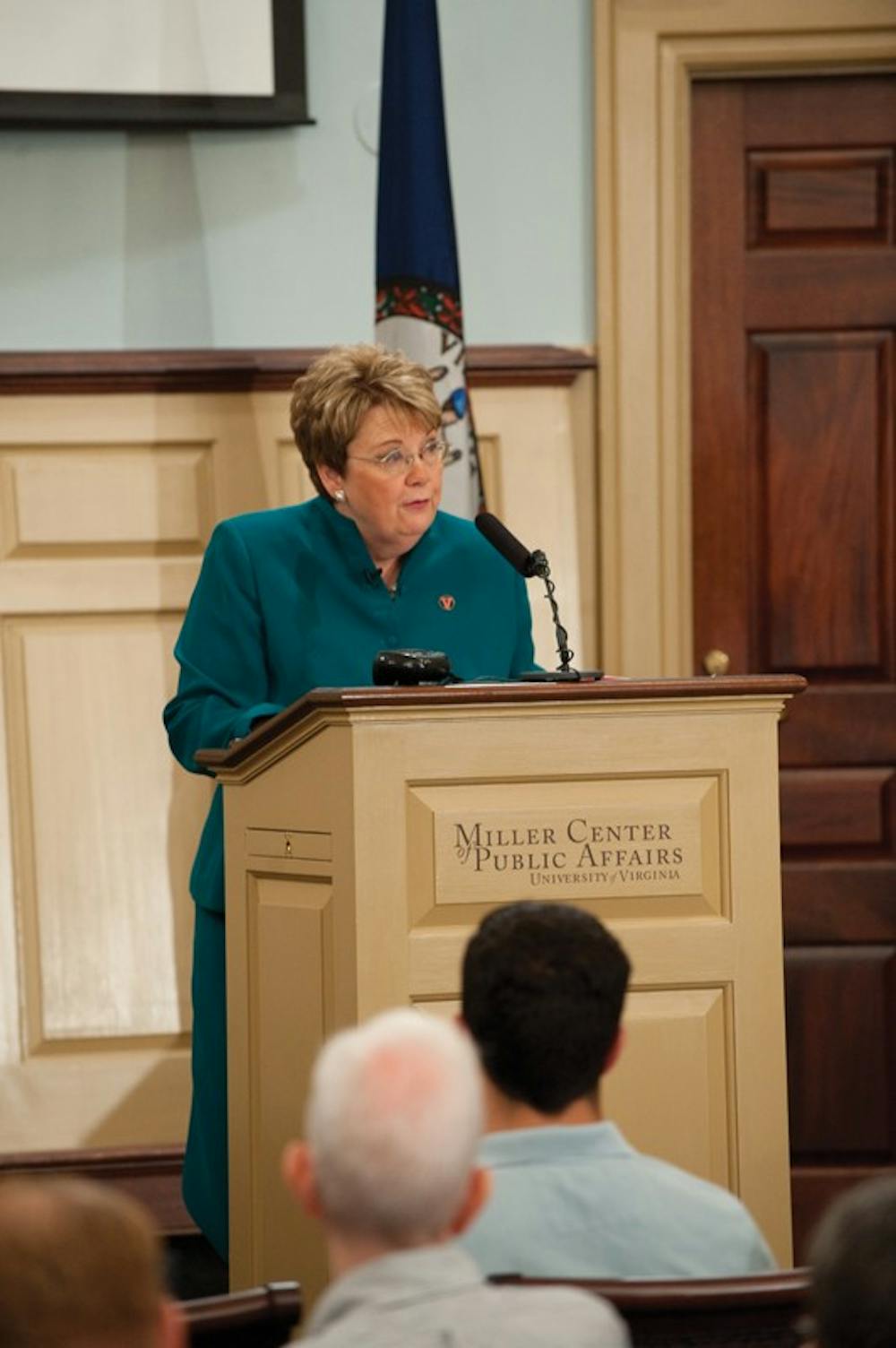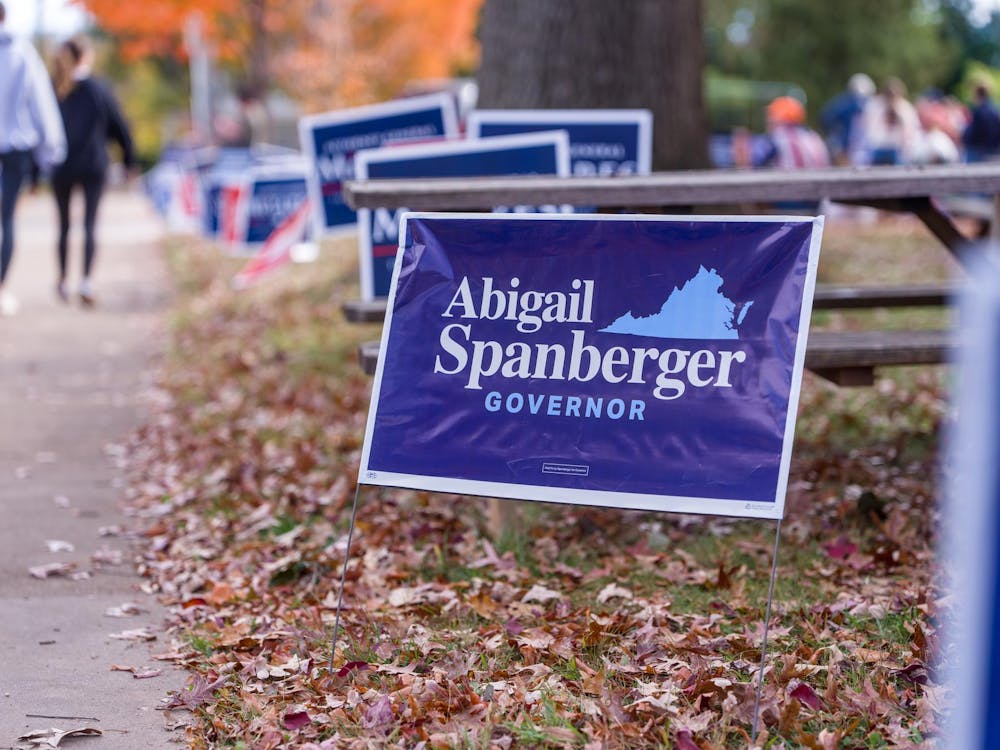University President Teresa Sullivan joined 164 other university presidents across the nation in signing a letter to members of Congress in a push for increased federal funding for education and research.
The letter, drafted at the end of July by heads of the Association of American Universities and the Association of Public and Land Grant Universities, focuses on the need for funding to close today’s “innovation deficit,” or, “eroding federal investments in research and higher education, additional cuts due to sequestration, and the enormous resources other nations are pouring into these areas.”
Jeff Lieberson, vice president of public affairs at APLU, said the letter was circulated among university presidents prior to its release, and on July 31 went public via an ad featured in Politico. While at the time of its release, the letter contained 165 signatures, according to Lieberson that number is now closer 200 names.
“The letter was a kickoff to other efforts that we will be pursuing over the next several months,” Lieberson said. “Universities will be reaching out to their members of Congress directly … there’s a lot of public visibility around this issue, [such as] op eds, letters to the editor, etc., that we’ll be partaking in.”
AAU works with 62 institutions, both public and private, while APLU works exclusively with 218 public universities. Barry Toiv, vice president for public affairs at AAU, said this letter is unique from past letters to Congress sent by AAU and APLU.
Every year, the AAU and APLU release a letter to Congress encouraging them to reach a budget agreement for the upcoming fiscal year that reduces pressure on discretionary spending, where research and student aid is contained.
“Our universities drew the conclusion this time that Congress is nowhere near reaching such an agreement,” Toiv said. “[We] decided that the message needs to be that, as long as we’d like to see the larger problems solved, we need to do whatever we can to prevent additional cuts in the areas that are critical to innovation.”
The AAU and APLU maintain a website to track information and facts surrounding the innovation deficit. Much of the facts on innovationdeficit.org focus on stark comparisons between the U.S, China, and South Korea.
“The innovation deficit has not been presented in this way before, and it’s drawing a contrast between what is happening [in the U.S.] and in other countries,” Lieberson said. “We see in the U.S. how we invest and it powers the economy forward and it creates jobs, and [we see] other countries replicate this, but here we are moving in the wrong direction and they are moving forward.”
The letter cites groundbreaking research such as vaccines, lasers, MRI scanners, touch screens, GPS, the internet as examples of federally-funded scientific research.
“The universities are conducting this research on behalf of the public and they are already spending a lot to do that,” Toiv said. “The universities cannot afford to pick up where the federal government drops the ball.”
Toiv lamented the fact that the sequester extends over a period of nine years, so inevitable future spending cuts are “unsustainable.”
Private companies are often less willing or able than federally-supported organizations to invest in research and development projects, Lieberson said. “The core of the innovation here is investments- basic research and discovery, and there’s no clear outcome of what that’s going to be … It’s not the type of research a company would necessarily invest in because there’s no clear payoff, and that’s why its so important for the government to do so,” he said.
The AAU and APLU, along with university leaders, will continue to press for change as legislation comes up for debate in the fall, Lieberson and Toiv said.
“This is really an issue that’s been coming for a while,” Toiv said. “[These] cuts will have a serious impact on carrying out their [the universities] mission and that’s why they’re speaking out.”







